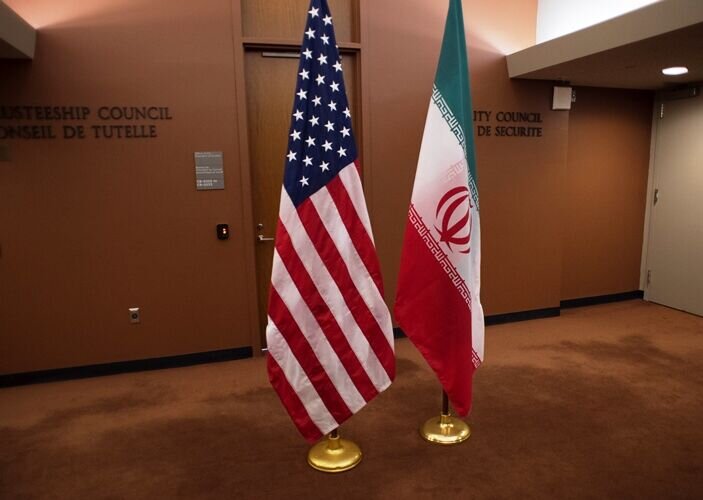U.S. reacts to Kharrazi remarks over possibility of changing nuclear doctrine

TEHRAN- Vedant Patel, the spokesperson for the U.S. State Department, has reacted to the remarks by Kamal Kharrazi, the head of the Strategic Council on Foreign Relations, regarding the possibility of changing Iran’s nuclear doctrine in the face of threats to its existence.
During a press briefing on Tuesday, the spokesperson was asked about Kharrazi’s recent words that Iran has no choice but to change its nuclear doctrine when facing an enemy.
He then was asked for the opinion on such statements and whether the U.S. officials are concerned about a change in Iran’s doctrine.
The spokesperson replied, “Let me reiterate what I have said before, that President Biden and Secretary Blinken will not allow Iran to acquire nuclear weapons.”
He went on to add, “We continue to assess, although Iran is not currently engaging in the key activities necessary to produce a testable nuclear weapon.”
“We do not believe that Iran’s Leader has made a decision to resume the weapons program that we believe was suspended or halted at the end of 2003. But again, we will not allow Iran to have nuclear weapons,” the spokesperson said.
Patel also stated that Washington has ways to communicate with Iran when it is in the U.S. interest, adding that “I will not comment on them. But I will only reiterate that we will not allow Iran to have nuclear weapons.”
Kamal Kharrazi, the head of the Strategic Council on Foreign Relations, said in an interview with Al Jazeera that “if the Zionist regime dares to strike Iran’s nuclear facilities, our deterrent level will change, and if Iran’s existence is threatened, we will be forced to change our nuclear doctrine.”
He answered multiple questions regarding the developments in Gaza, geopolitical changes in the region due to the war and the “Operation True Promise” as well as the shift in global order towards a multipolar world.
During his weekly presser on Monday, the spokesperson for the Foreign Ministry, Nasser Kanaani, stated that Tehran has the fatwa of the Leader of Islamic Revolution as stating the prohibition of inhumane weapons based on the Islamic religion and does believe that these weapons pose a threat to the global community.
Kanaani said that Iran has not made changes to its nuclear doctrine while adding that “only the Zionist regime is not a party to the NPT in the West Asian region.”
He continued that Iran’s official positions on weapons of mass destruction have been repeatedly stated through Iran’s high-ranking officials, and no changes have been made in Iran’s nuclear doctrine.
Kanaani also said that the Islamic Republic of Iran has taken various actions in various political, legal, and international areas, the dimensions of which are evident to the global community.
Iran, after signing the Joint Comprehensive Plan of Action (JCPOA) in 2015 with the goal of lifting unjust sanctions, fulfilled its responsibilities flawlessly as a responsible country.
This was confirmed in 16 reports by the International Atomic Energy Agency. However, after Donald Trump took office in January 2017, and following a series of preliminary actions, the U.S. unilaterally and unlawfully withdrew from the JCPOA in May 2018, reinstating secondary sanctions against Iran in two stages.
The unbalanced implementation of the agreement on one side and the pressures resulting from the unilateral U.S. sanctions on the other side led to the National Security Council of the Islamic Republic of Iran, one year after the U.S. withdrawal from the JCPOA, to make decisions to halt the gradual implementation of voluntary nuclear commitments and give diplomacy a 60-day opportunity.
Tehran adhered to all its commitments under the JCPOA for a year after the U.S. withdrawal to give European countries, who promised to compensate for the effects of Washington’s exit, a chance to fulfill their promises. However, since European countries did not live up their promises, Iran gradually reduced its commitments under the JCPOA based on the provisions of the nuclear agreement.
The Biden administration, after taking office in January 2021, condemned the previous U.S. administration’s unilateral action to exit the Iran deal but has so far fallen short of taking any credible action to rectify past wrongdoings and has adopted a policy of maximum pressure similar to that of the Trump administration.
The Biden administration, claiming a diplomatic approach towards Iran and efforts to return to the JCPOA, has not only failed to return to the agreement but has also imposed sanctions on Iran under various pretexts related to Iran’s defensive deterrent capabilities, including ballistic missiles, drones, nuclear activities, and human rights.
Leave a Comment